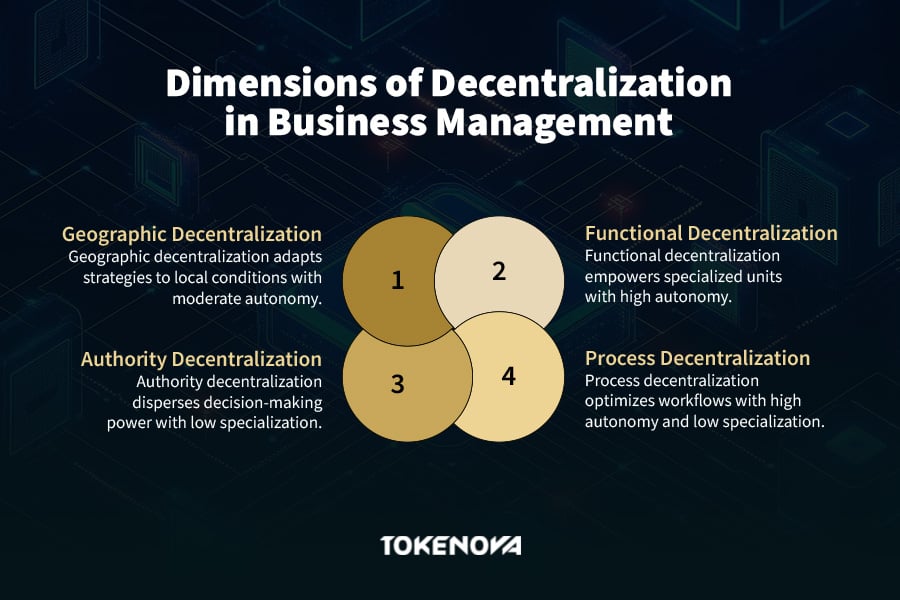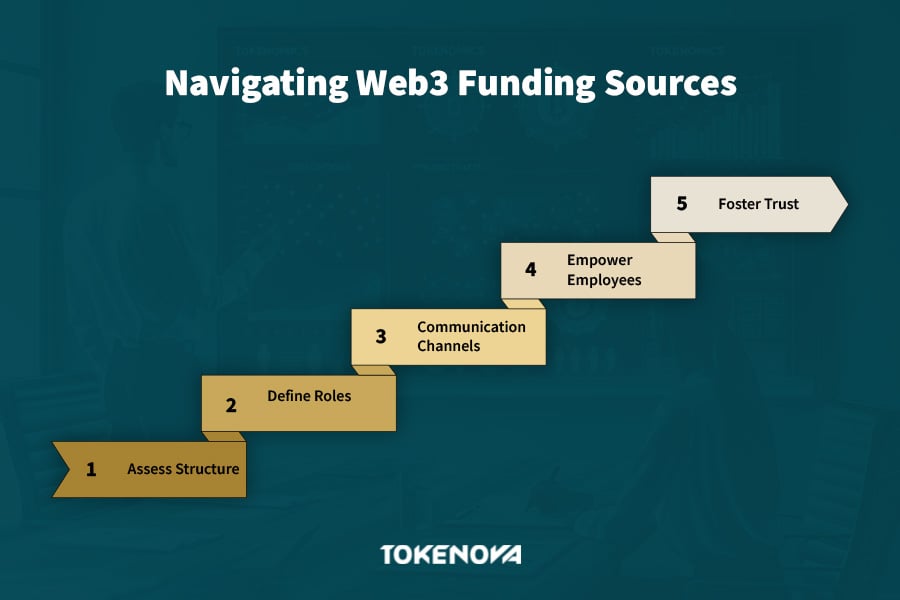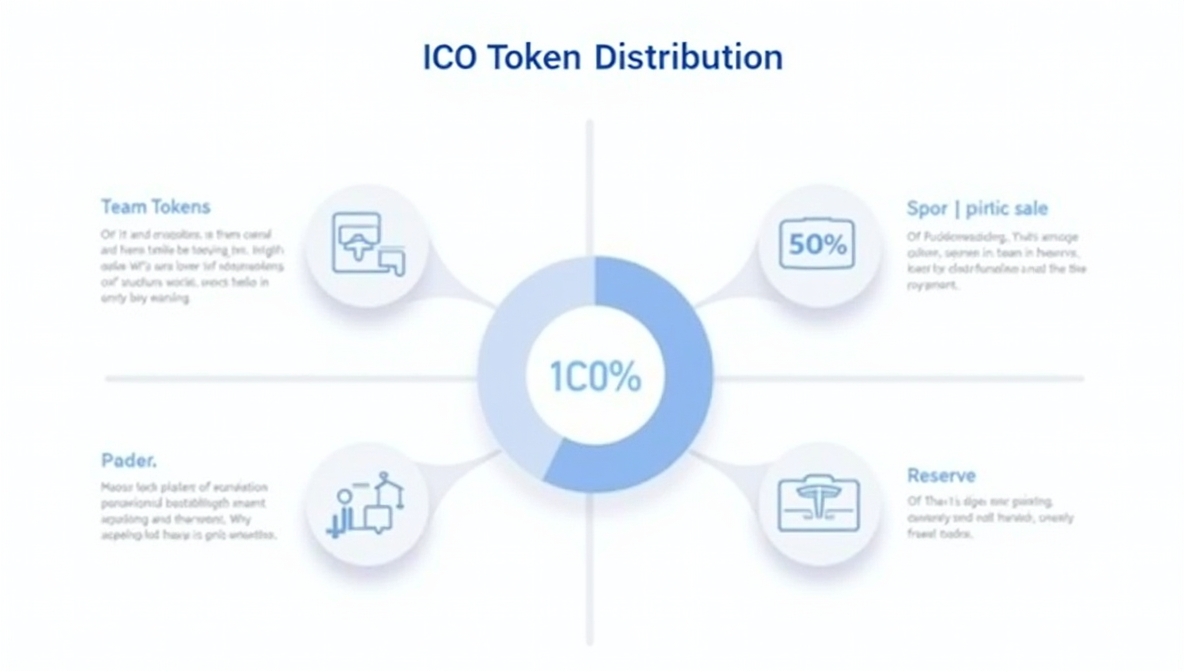In today’s fast-paced market, decentralization in business management is transforming how companies operate. This innovative approach shifts decision-making from centralized leadership to empowered teams, fostering agility, creativity, and rapid responses to market changes. By breaking down hierarchical barriers, organizations can leverage local insights and promote employee ownership. This article explores the various dimensions, benefits, challenges, and real-world examples of decentralization in business management, while also providing actionable strategies for implementation.
Understanding Decentralization in Business Management
Decentralization in business management represents a fundamental rethinking of organizational structures. Instead of relying on a rigid, top‐down approach, companies are increasingly adopting models where authority is distributed across various levels. In these structures, decision-making power is delegated to teams and individuals who are closest to operational challenges. This method not only improves response times but also cultivates a culture of trust and empowerment throughout the organization.

At its core, decentralization is about transferring responsibilities from senior leadership to a broader workforce. This practice enables executives to focus on strategic initiatives while allowing employees to manage day‐to‐day operations autonomously. As businesses grow and global competition intensifies, the need for agile, responsive, and innovative management approaches becomes more pronounced. Integrating decentralization in business management is now seen as a crucial factor for maintaining a competitive edge.
Dimensions of Decentralization
Decentralization in business management can be examined through multiple dimensions. Each dimension provides a unique lens on how power and responsibility can be reallocated within an organization.

Authority Decentralization
Authority decentralization involves dispersing decision-making power from top executives to lower levels of the hierarchy. In this model, self-managing teams are granted autonomy to resolve operational challenges, make tactical decisions, and implement solutions in real time. By reducing bureaucratic delays, companies can respond to customer needs more quickly and innovate without waiting for approvals from a centralized body.
This approach also encourages a culture of distributed leadership. Instead of relying on a single leader, employees at various levels step up to take charge based on expertise and situational demands. Such a system promotes creative problem-solving and enables organizations to harness the collective intelligence of their workforce.
Functional Decentralization
In functional decentralization, authority is segmented according to business functions. Departments such as marketing, finance, production, and human resources are each provided with the autonomy to make decisions relevant to their domain. This separation allows each unit to tailor its operations to better meet its specific challenges and opportunities.
For instance, independent business units can operate almost as mini-enterprises, customizing their strategies to local market demands. This model is particularly effective in organizations with diversified product lines or multiple customer segments, where centralized control might stifle innovation and slow down decision-making processes.
Geographic Decentralization
Geographic decentralization assigns decision-making power based on location. In a globalized economy, businesses often operate in multiple regions with unique cultural, economic, and regulatory environments. Decentralized management enables regional offices and international branches to adapt strategies that reflect local conditions and consumer behaviors.
This approach has become even more relevant with the rise of remote work. Distributed teams working across different time zones benefit from localized decision-making, which can lead to better market penetration and a more nuanced understanding of regional customer preferences.
Process Decentralization
Process decentralization empowers teams to manage and optimize specific workflows independently. By granting operational units the authority to adapt processes based on their expertise, companies can reduce bottlenecks and improve overall efficiency. Teams can continuously refine their processes, ensuring that each step aligns with local needs and evolving market dynamics.
Moreover, emerging technologies such as blockchain are facilitating process decentralization. Smart contracts automate transaction steps, further reducing the need for centralized oversight and boosting transparency and speed in business operations.
Read More: Tokenization and Smart Contracts: Transforming Finance
Benefits of Decentralization in Business Management
Implementing decentralization in business management offers a multitude of benefits that can significantly enhance organizational performance.
Enhanced Agility and Responsiveness
One of the most compelling benefits of decentralization is the dramatic improvement in agility. By transferring decision-making authority to teams that are closer to the operational frontlines, organizations can adapt more quickly to market shifts, emerging trends, and customer feedback. This rapid responsiveness minimizes delays and allows for swift adjustments, ensuring that businesses remain competitive in fast-changing environments.
Fostering Innovation and Creativity
When employees are empowered to make independent decisions, a culture of innovation naturally emerges. Decentralized business management nurtures creativity by allowing diverse perspectives to influence problem-solving. Teams can experiment with novel approaches without the constraints of a rigid hierarchy, leading to breakthrough innovations that drive growth. This environment of experimentation is crucial in today’s competitive markets, where continuous innovation is essential for survival.
Increased Employee Engagement and Motivation
Decentralization in business management is not only about operational efficiency; it also has a profound impact on employee morale. When employees have a say in decision-making and feel trusted to manage their work, they experience a higher level of job satisfaction and commitment. This increased engagement often translates into improved productivity, better customer service, and lower turnover rates. Empowered teams are more likely to take ownership of their roles, fostering a sense of accountability and pride in their contributions.
Improved Efficiency and Scalability
By decentralizing functions, organizations can streamline resource allocation and reduce operational redundancies. Autonomous teams have a better grasp of their specific needs, enabling them to manage resources more efficiently. As a result, companies can scale operations more seamlessly. Decentralization creates a flexible structure that allows new units or locations to operate with a high degree of independence, adapting strategies to local demands without compromising overall brand integrity.
Enhanced Organizational Resilience
Decentralization also strengthens an organization’s resilience. With decision-making power distributed among various teams, companies are less vulnerable to disruptions caused by the absence of a few key individuals. This distributed model ensures that operations continue smoothly even in times of crisis. Moreover, by reducing reliance on centralized control, businesses can maintain continuity and stability, even when facing unforeseen challenges.
Implementing Decentralization: Strategies for Success

Transitioning to a decentralized model in business management requires careful planning and execution. The following strategies can help organizations implement decentralization effectively:
1. Assessing the Current Organizational Structure
The first step is to evaluate the existing hierarchy and decision-making processes. By identifying bottlenecks and inefficiencies, organizations can pinpoint areas where decentralization might yield significant benefits. This assessment should consider the company’s size, complexity, industry dynamics, and customer expectations. Understanding these factors lays the groundwork for a successful transformation.
2. Defining Clear Roles and Responsibilities
Clarity in roles and responsibilities is paramount when shifting to a decentralized model. Establishing well-defined boundaries for decision-making authority ensures that employees understand their scope of work and accountability. Frameworks such as RACI (Responsible, Accountable, Consulted, Informed) can be instrumental in delineating responsibilities, thereby preventing confusion and overlap between departments.
3. Establishing Robust Communication Channels
In a decentralized environment, communication is the lifeblood of success. With teams spread across different locations and operating independently, establishing consistent and effective communication channels is crucial. Organizations should invest in advanced collaboration tools, such as real-time messaging platforms, video conferencing software, and integrated project management systems. These tools help maintain alignment, facilitate knowledge sharing, and ensure that all team members are informed about ongoing initiatives and changes.
4. Empowering Through Training and Autonomy
For decentralization to thrive, employees must be equipped with the necessary skills to make informed decisions. Comprehensive training programs focused on leadership, critical thinking, and problem-solving are essential. Additionally, organizations should create an environment where employees are encouraged to take initiative and exercise autonomy. This not only builds confidence but also promotes a culture where innovation and proactive problem-solving are the norm.
5. Fostering a Culture of Trust and Accountability
Trust is the cornerstone of decentralization in business management. Leaders must build a culture where employees feel empowered to make decisions without fear of undue criticism. At the same time, clear accountability mechanisms must be in place to monitor performance and ensure that decentralized decisions align with the overall strategic vision. Regular performance reviews, transparent metrics, and recognition of successes are key components in nurturing this culture.
Read More: Blockchain Governance: Building Trust and Transparency
Overcoming Challenges in Decentralization
While decentralization offers numerous advantages, it also presents challenges that organizations must address proactively.
Coordination and Strategic Alignment
One major challenge is ensuring coordination among decentralized units. Without a strong central vision, different teams might pursue divergent strategies that could lead to misalignment with the organization’s overarching goals. To counter this, companies need to establish clear strategic guidelines and periodic review mechanisms that align local initiatives with the broader corporate mission.
Balancing Autonomy with Central Control
Decentralization inherently reduces the degree of direct control exercised by top management. Although this shift promotes agility, it can sometimes lead to deviations from company policies or inconsistent application of standards. Organizations must strike a balance by defining which decisions require central oversight and which can be managed locally. This balance is crucial for maintaining both flexibility and uniformity across the organization.
Navigating Communication Complexities
With teams operating autonomously and often across different geographical regions, communication challenges can arise. Misinterpretations, delayed responses, and information silos are common issues that can impede effective collaboration. Investing in robust digital communication infrastructures and establishing clear communication protocols are essential measures to mitigate these challenges.
Ensuring Employee Readiness for Self-Management
Decentralized business management demands a high level of self-discipline and initiative from employees. Not every individual may be prepared to handle the increased responsibility that comes with autonomy. It is important to assess the workforce’s readiness for self-management and provide targeted support and training to bridge any gaps in skills or confidence.
Adapting to Industry-Specific Needs
Decentralization is not a one-size-fits-all solution. Its suitability varies depending on the industry, organizational size, and regulatory environment. Highly regulated sectors, such as finance or healthcare, may require a more cautious approach to decentralization. Companies must carefully evaluate their specific context to determine the optimal level of decentralization that maximizes benefits without compromising compliance or quality.
Decentralization in Action: Business Examples
Real-world examples highlight how decentralization in business management can lead to remarkable success. Consider the following case studies:
Zappos – The online retailer is renowned for its adoption of Holacracy, a model that eliminates traditional hierarchies and empowers self-organized circles. This approach has enhanced customer focus while fostering a culture of continuous innovation.
W.L. Gore & Associates – With a decentralized structure emphasizing employee autonomy, this manufacturer of technical fabrics has cultivated an environment where collaboration and rapid decision-making thrive.
Valve Corporation – This video game developer operates with a flat structure that encourages employee-driven projects, creating an atmosphere where creativity and innovative thinking flourish.
Spotify – The music streaming giant employs the “Squad” model, in which cross-functional teams operate independently. This decentralized approach drives agility and enables quick responses to market trends while fostering deep team ownership.
Johnson & Johnson – With over 250 autonomous business units, this consumer goods giant leverages decentralization to adapt to diverse local markets, ensuring responsiveness and flexibility.
Buurtzorg – In healthcare, this Dutch home-care organization operates through self-managed nurse teams. This model not only boosts employee commitment but also significantly improves customer satisfaction via localized decision-making.
Google (Alphabet) – Operating through multiple independent companies under its umbrella, Google demonstrates how decentralized structures can fuel innovation and strategic agility.
Nike and Netflix – Both companies exemplify how decentralization fosters rapid adaptation. Nike’s empowered employees can swiftly respond to market shifts in the athletic apparel industry, while Netflix’s “Freedom and Responsibility” culture drives continuous innovation in content and service delivery.
Haier – This Chinese consumer electronics company has implemented the “Rendanheyi” model, breaking the organization into small, startup-like units. This radical decentralization boosts agility and innovation, enabling a prompt response to changing market demands.
Future Trends and Technology in Decentralization
As global business dynamics continue to evolve, decentralization in business management is set to play an even more critical role in shaping future organizational landscapes.

Remote Work and Distributed Teams
The rise of remote work and distributed teams has accelerated the adoption of decentralized models. Companies are increasingly embracing flexible work arrangements and leveraging technology to bridge geographical gaps. Decentralized decision-making enables remote teams to operate independently, ensuring that distance does not hinder collaboration or innovation. This trend is likely to persist as organizations recognize the benefits of a diverse, globally distributed workforce.
Technological Enablers
Advancements in technology are acting as catalysts for decentralization. Modern collaboration tools—from advanced communication platforms to integrated project management systems—are making it easier than ever for teams to coordinate and share information across locations. Additionally, emerging technologies such as blockchain are revolutionizing process decentralization. Blockchain’s secure, transparent, and tamper-proof ledger supports smart contracts that automate workflows without the need for a central authority, paving the way for a new era of decentralized business management.
Read More: Best Blockchain for Tokenization: Your Ultimate Guide
Evolving Leadership Models
Leadership in decentralized organizations is undergoing a paradigm shift. Traditional command-and-control styles are being replaced by approaches that emphasize mentorship, facilitation, and the cultivation of distributed leadership. In these environments, leaders act as enablers who empower teams to innovate and take ownership of their work. This evolution not only fosters trust but also encourages a continuous learning mindset throughout the organization.
Integration with Web 3.0
Looking ahead, one of the most exciting prospects is the integration of decentralization in business management with emerging Web 3.0 technologies. One of the main pillars of the emerging economy, built on Web3 principles, is being formed based on this logic. This integration promises to further enhance autonomy and efficiency across business processes, fundamentally reshaping how organizations manage data, execute contracts, and engage with stakeholders.
Read More: Web3 Legal: Startup Regulatory Framework
Unlock the Future of Decentralization with Tokenova
Tokenova is your premier consulting and advisory firm, specializing in decentralized business management and blockchain innovation. We help businesses transition to agile, scalable, and future-proof models through expert guidance and cutting-edge strategies.
Why Choose Tokenova?
- Expert Consulting – Gain insights from industry leaders in decentralization, blockchain, and Web3.
- Custom Strategies – Tailored solutions to optimize governance, efficiency, and innovation.
- Seamless Integration – Implement decentralized frameworks without disrupting existing operations.
- Scalability & Growth – Future-proof your business with strategies designed for long-term success.
- End-to-End Support – From planning to execution, we guide you at every step.
Take your business to the next level. Partner with Tokenova and lead the decentralized revolution.
Schedule a free consultation today with our experts.
Conclusion
Decentralization in business management is a transformative strategy that enhances agility, fosters innovation, and empowers employees at every level. By redistributing authority, functions, geographic operations, and processes, organizations streamline operations and build resilience. One of the key pillars of the emerging economy—built on Web3 principles—is being established based on this logic. Embracing decentralization today paves the way for a future-ready, adaptive, and innovative organization.










